Discover Relatively Prime: Stories from the Mathematical Domain
Relatively Prime: Stories from the Mathematical Domain

Relatively Prime: Stories from the Mathematical Domain
Author: ACMEScience
Subscribed: 1,726Played: 6,685Subscribe
Share
© Creative Commons Attribution Share-Alike License
Description
Relatively Prime features stories and interviews from the mathematical world. Featuring math stories from people like Fields Medalists to indie rockers to linguists on topics ranging as wide as the artificial intelligence which defeated checkers and mathematics haiku battles. Relatively Prime has a mathematics story for anyone and everyone.
63 Episodes
Reverse
We are back with a new series in Relatively Prime that we are going to be calling Seminars! The seminars are going to be going out into the…
Sorry for the unannounced hiatus that has now lasted for four years, but our host and producer Sam Hansen has had a lot of life events and changes…
On this episode of Relatively Prime, Michole Enjoli and Noelle Sawyer take over for Black in Math Week. They talk to Brea Ratliff and José Vilson, two Black…
On this episode of Relatively Prime Samuel is joined by Brittany Rhodes the creator of the amazing monthly mathematics subscription box Black Girl Mathgic. They discuss where the…
On this episode of Relatively Prime Samuel is joined by Brigitte Stenhouse of the Open University to talk about the life and times of Mary, and William, Somerville.…
On this month’s Relatively Prime Samuel shares three scenes from the life of Benjamin Banneker. One about a clock, one about a solar eclipse projectsion, and one about…
In this live episode recorded at the 2020 Joint Mathematics Meetings in Denver Samuel Hansen talks about the truth behind the stories we all tell in mathematics. In…
To wrap up the year 2019 Samuel Hansen is joined by Katie Steckles and Christian Lawson-Perfect of Aperiodical.com to discuss some of the big stories from the world…
On this episode of Relatively Prime we explore the thoughts of authors of general audience mathematics books. Specifically they share why they started writing, how they choose their…
For this episode of Relatively Prime Samuel decided that instead of speaking to a guest they would instead talk about the research they are conducting now that they…
On this month’s episode of Relatively Prime Samuel Hansen speaks with Professor Mike Spivey from University of Puget Sound about his interactive fiction game A Beauty Cold and…
This episode is a bit of a blast from the past. Samuel has recently been going back through some of the old episodes from season 1 and while…
On this episode of Relatively Prime Samuel Hansen is joined by fellow podcasters and friends Katie Steckles and Peter Rowlett of the Aperiodical to talk about their new…
On this episode of Relatively Prime Samuel speaks with the founders, Sylvia Bozeman of Spellman College and Rhonda Hughes of Bryn Mawr, a current director, Ami Randunskaya of…
If a person is going to become a mathematician it is important for them to be able to see examples of people like themselves who have already made…
Here on Relatively Prime we have discussed mathematical novels and poetry and music and even featured mathematics sketches, but we have yet to talk movies. That oversight is…
On Relatively Prime we talk a lot about mathematicians and their research, but it has been a long time since we have talked about an absolutely integral part…
Samuel has been in the middle of a big move this month, more on this in upcoming episodes, but they did not want you to be without a…
This bonus episode of Relatively Prime features a live podcast recording from 2018’s Annual MathsJam Gathering. This live podcast featured segments from Math/Maths, Wrong But Useful, Talkdust, Strongly…
Welcome to the fourth and final episode of the Cycle of Mathematics mini-series from Relatively Prime. In this mini-series we are covering mathematics from its start as an…




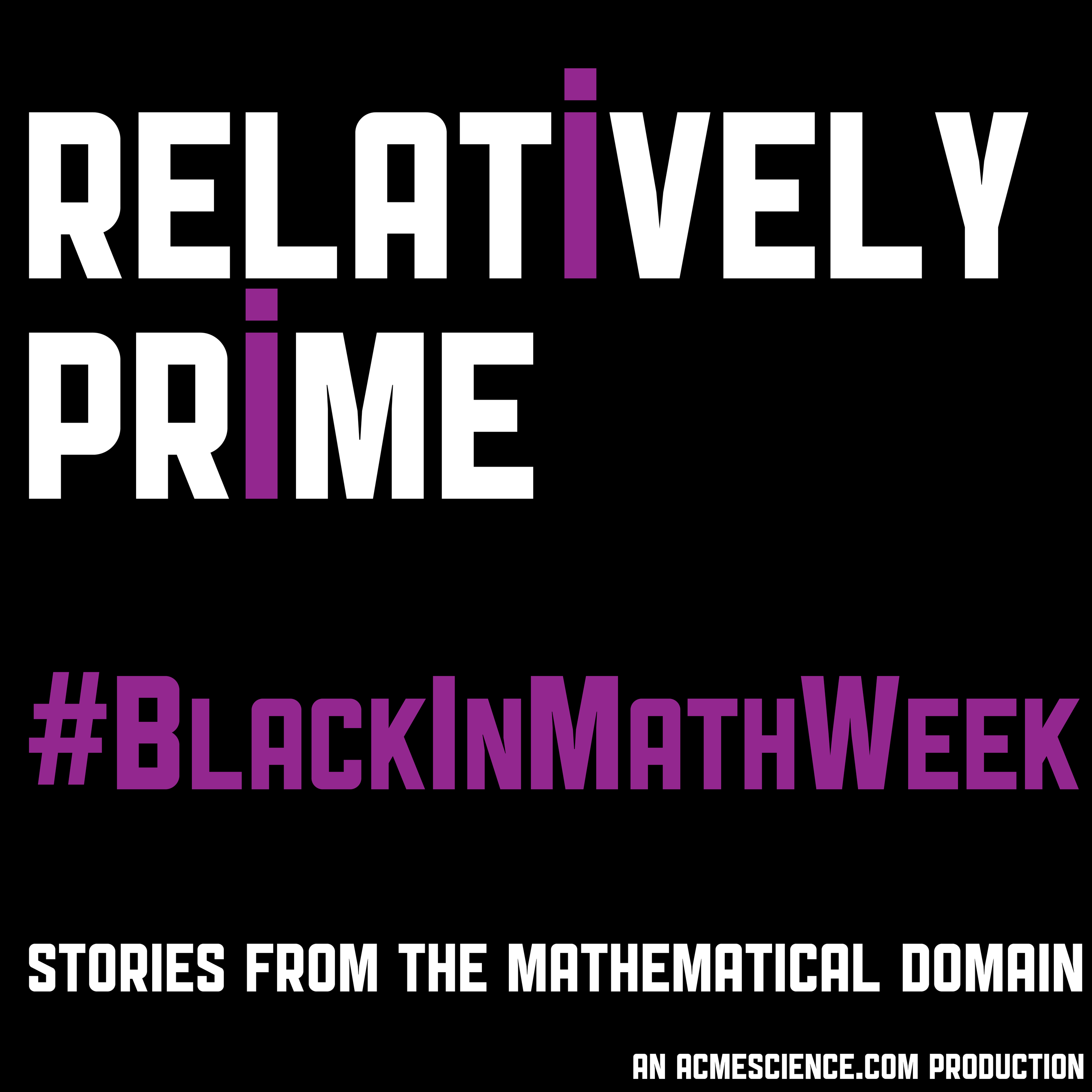
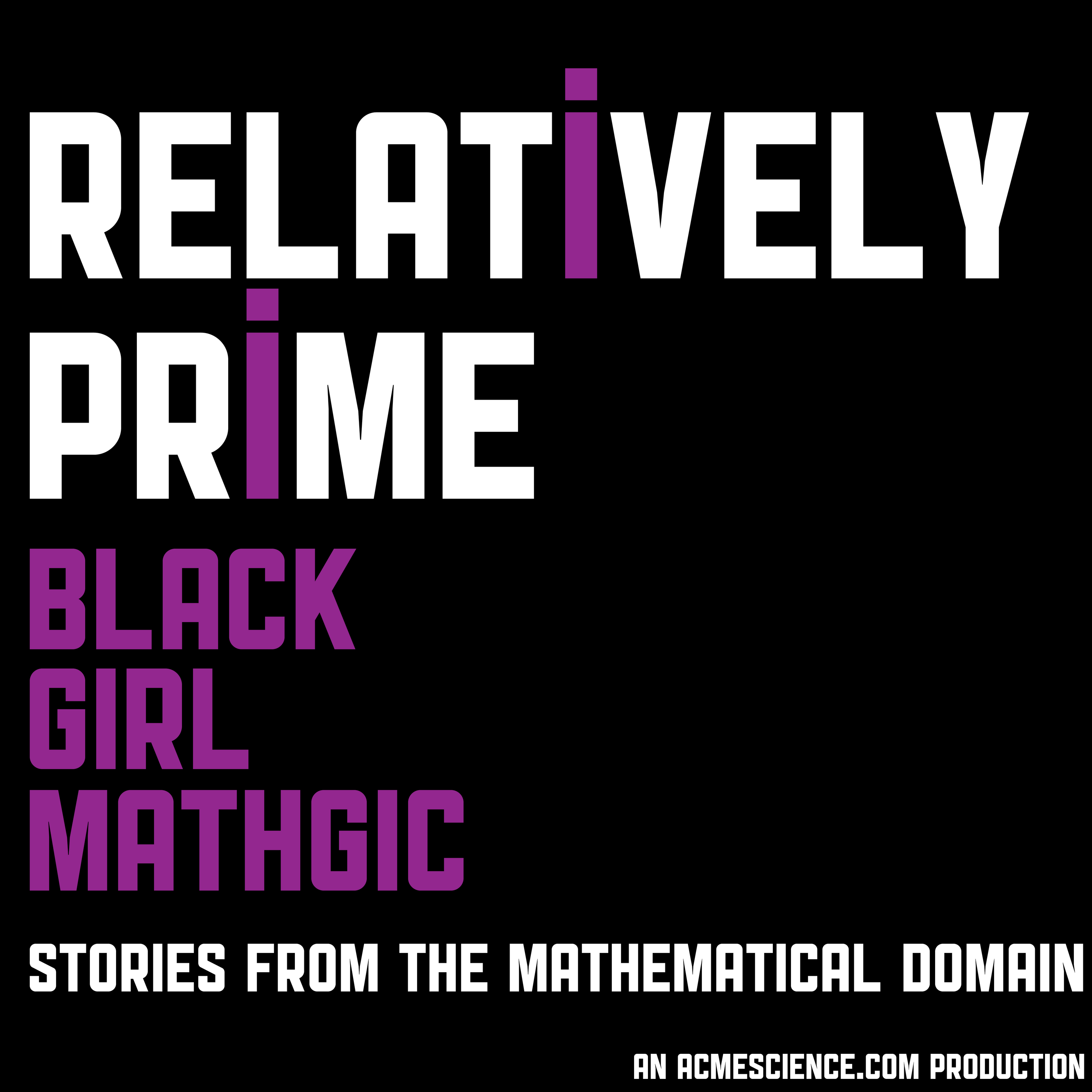
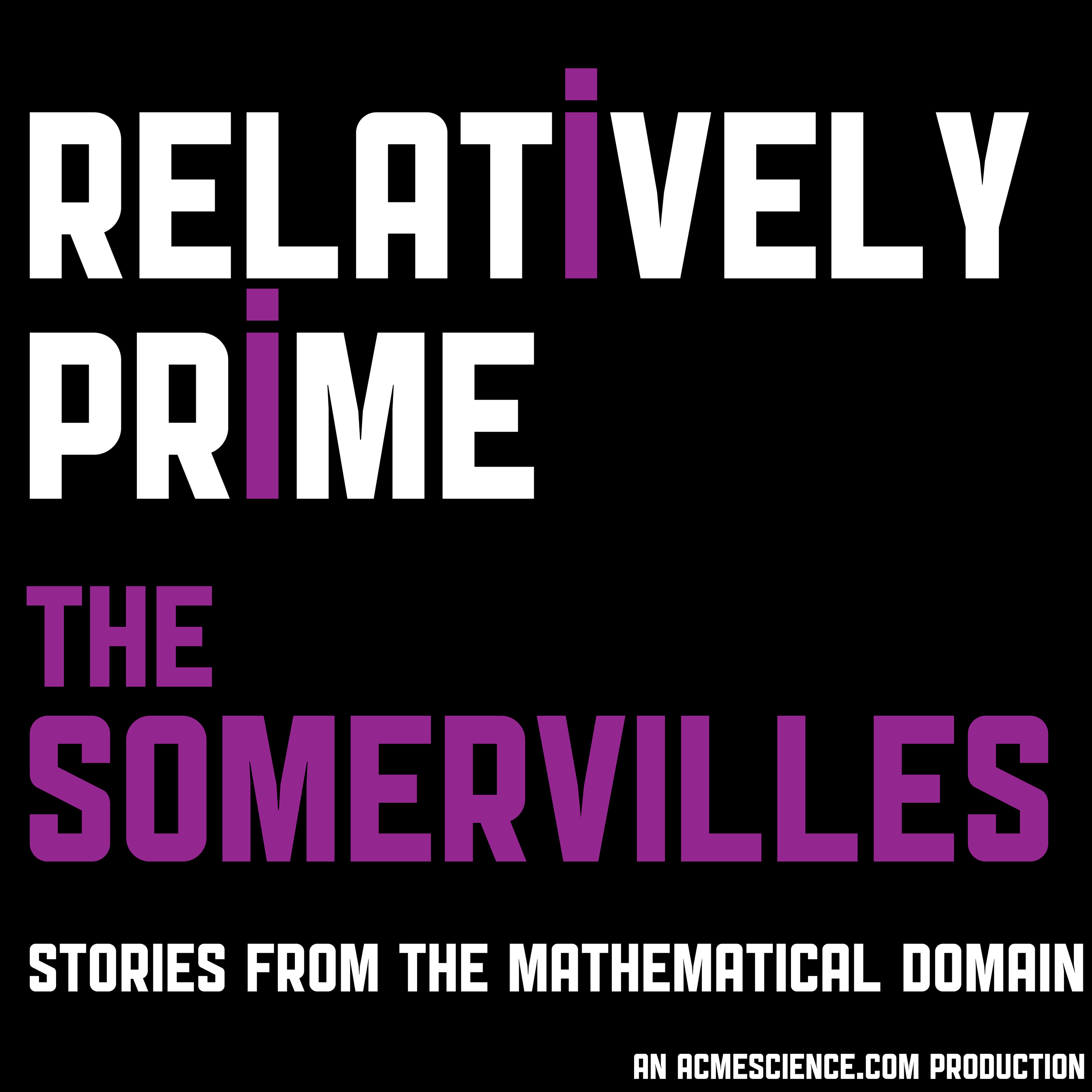
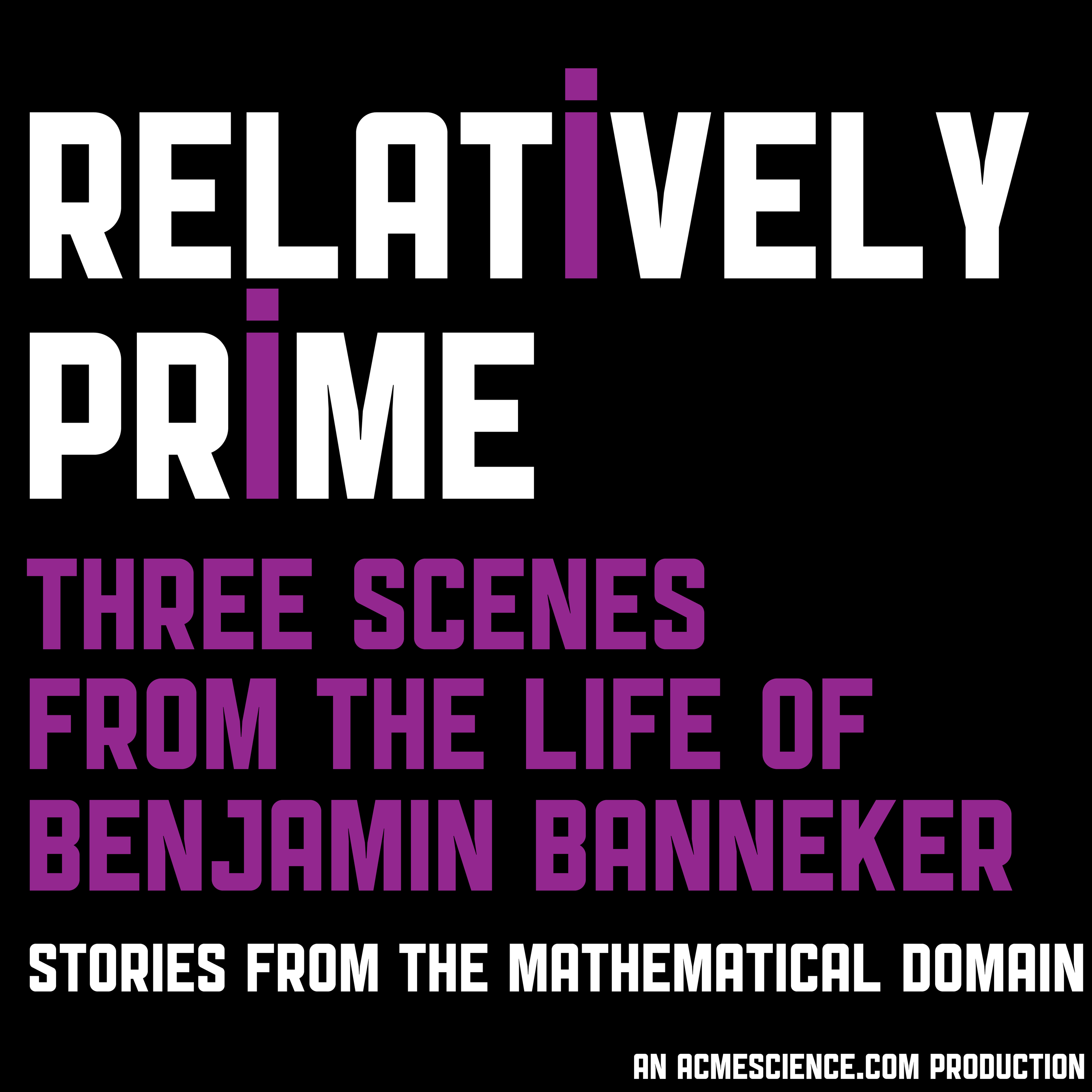


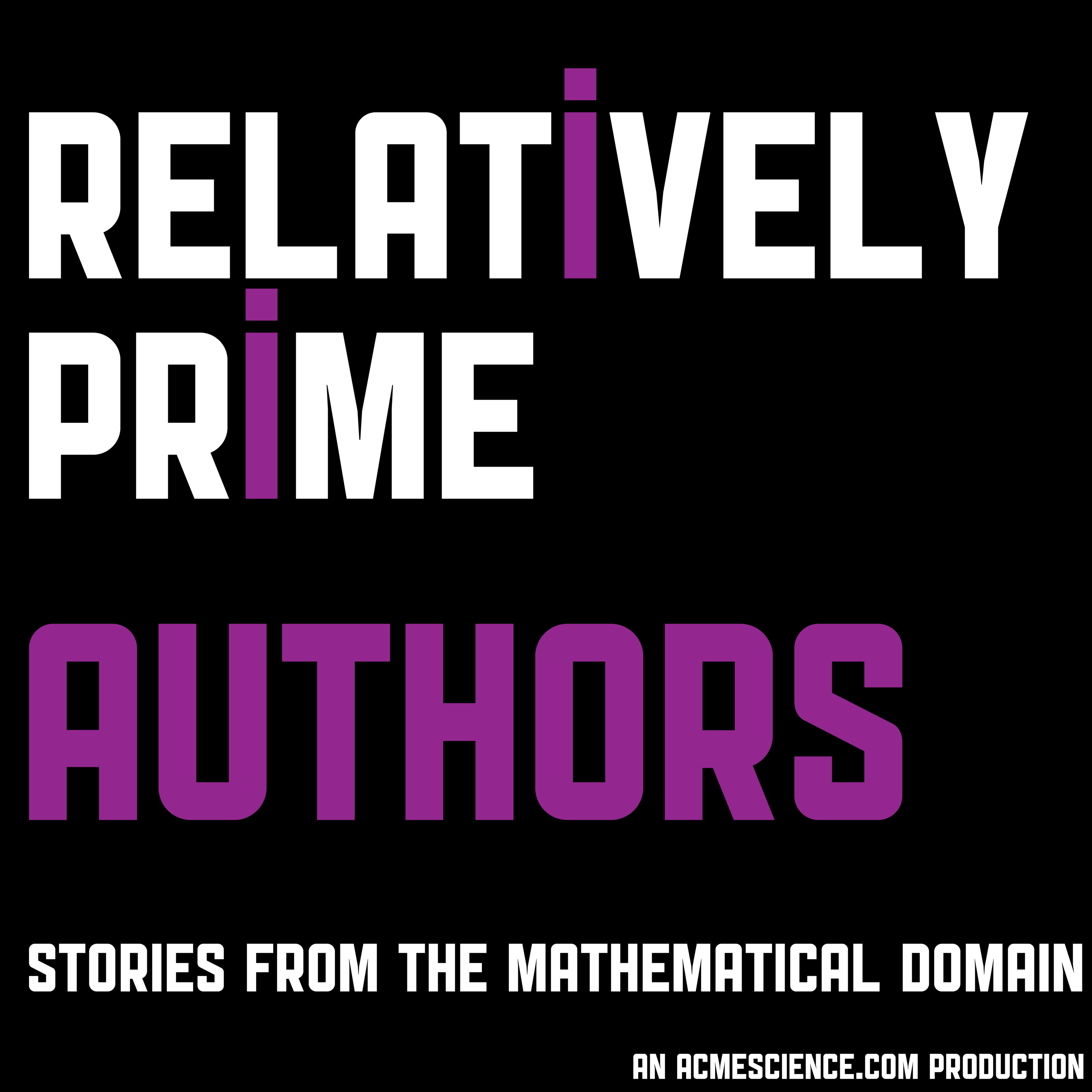

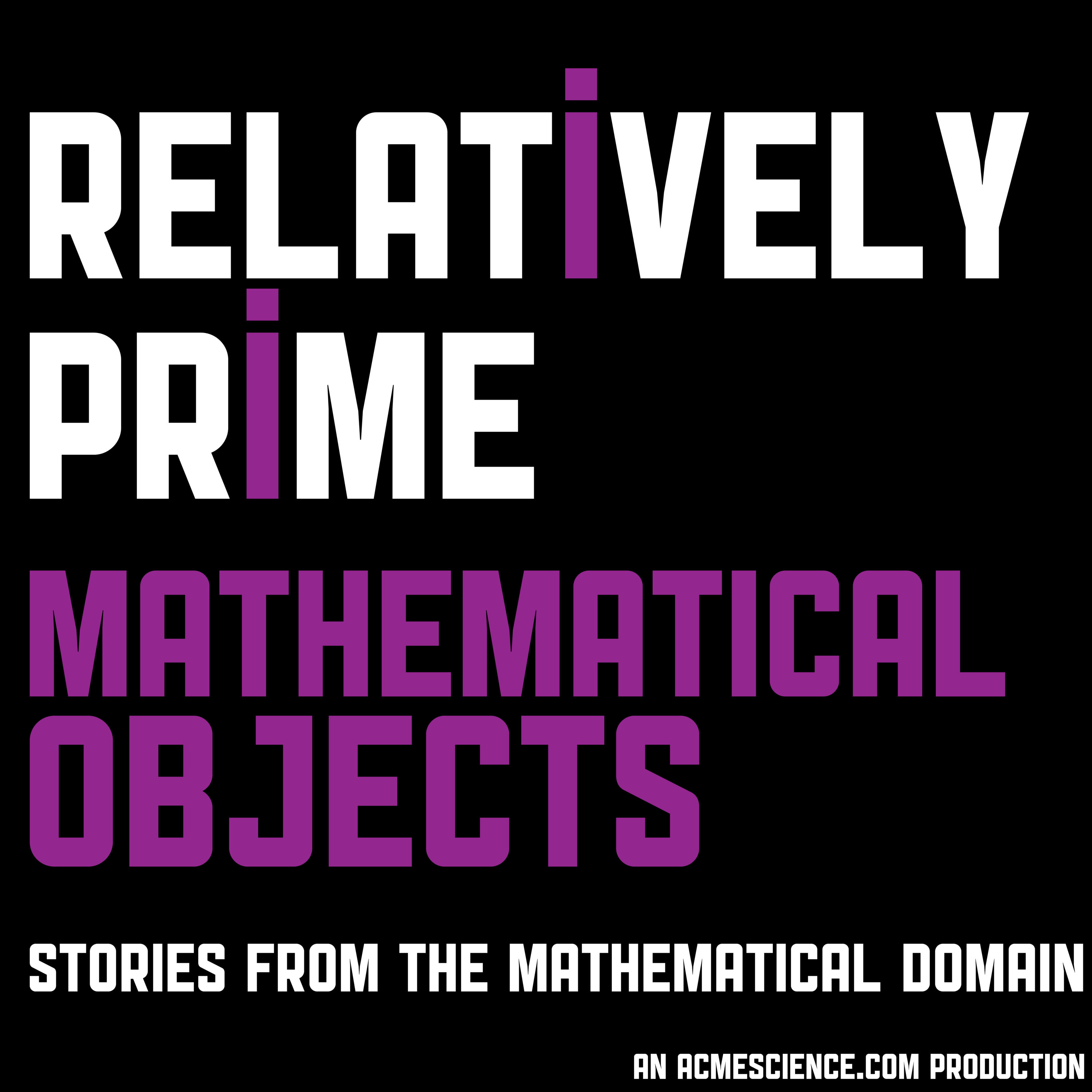
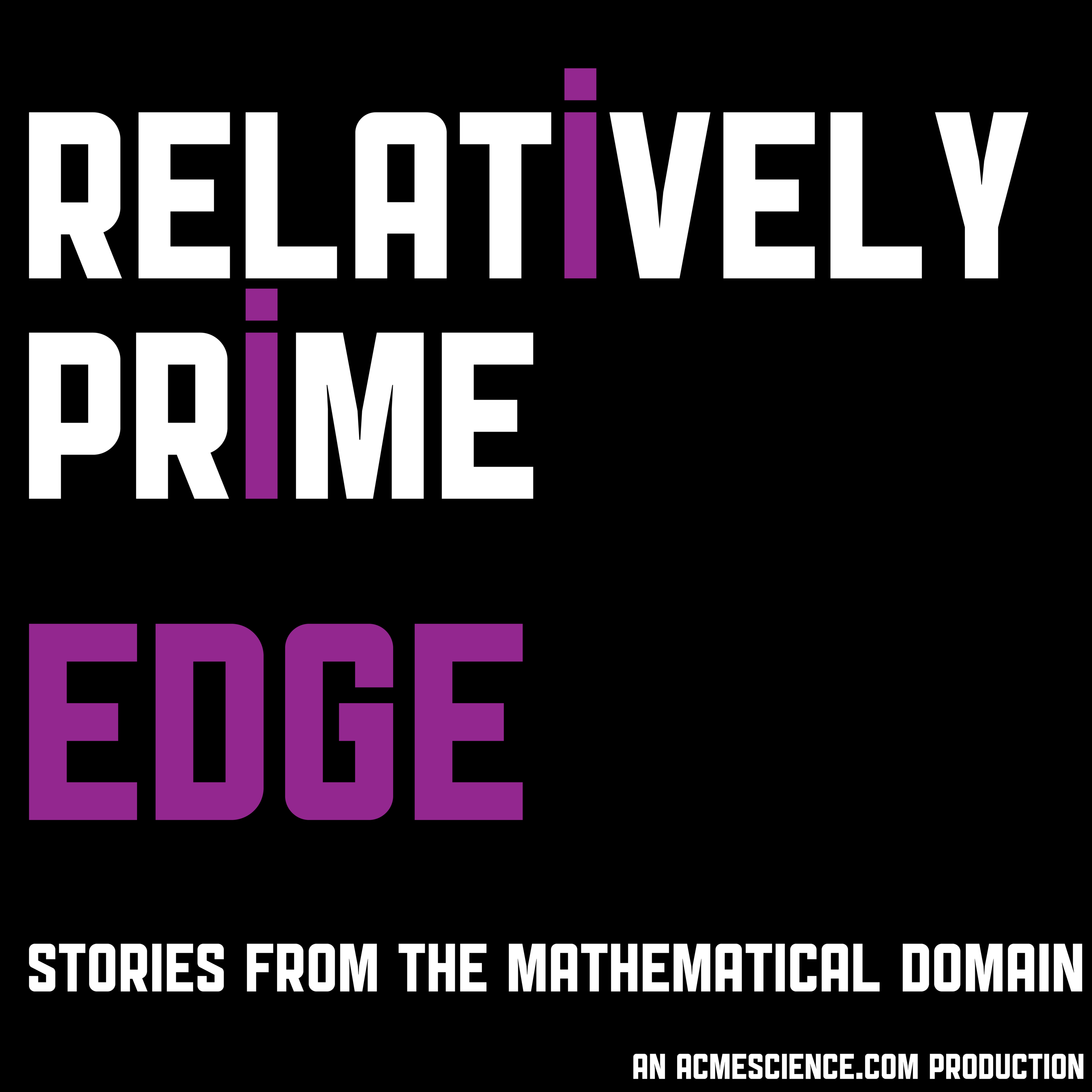
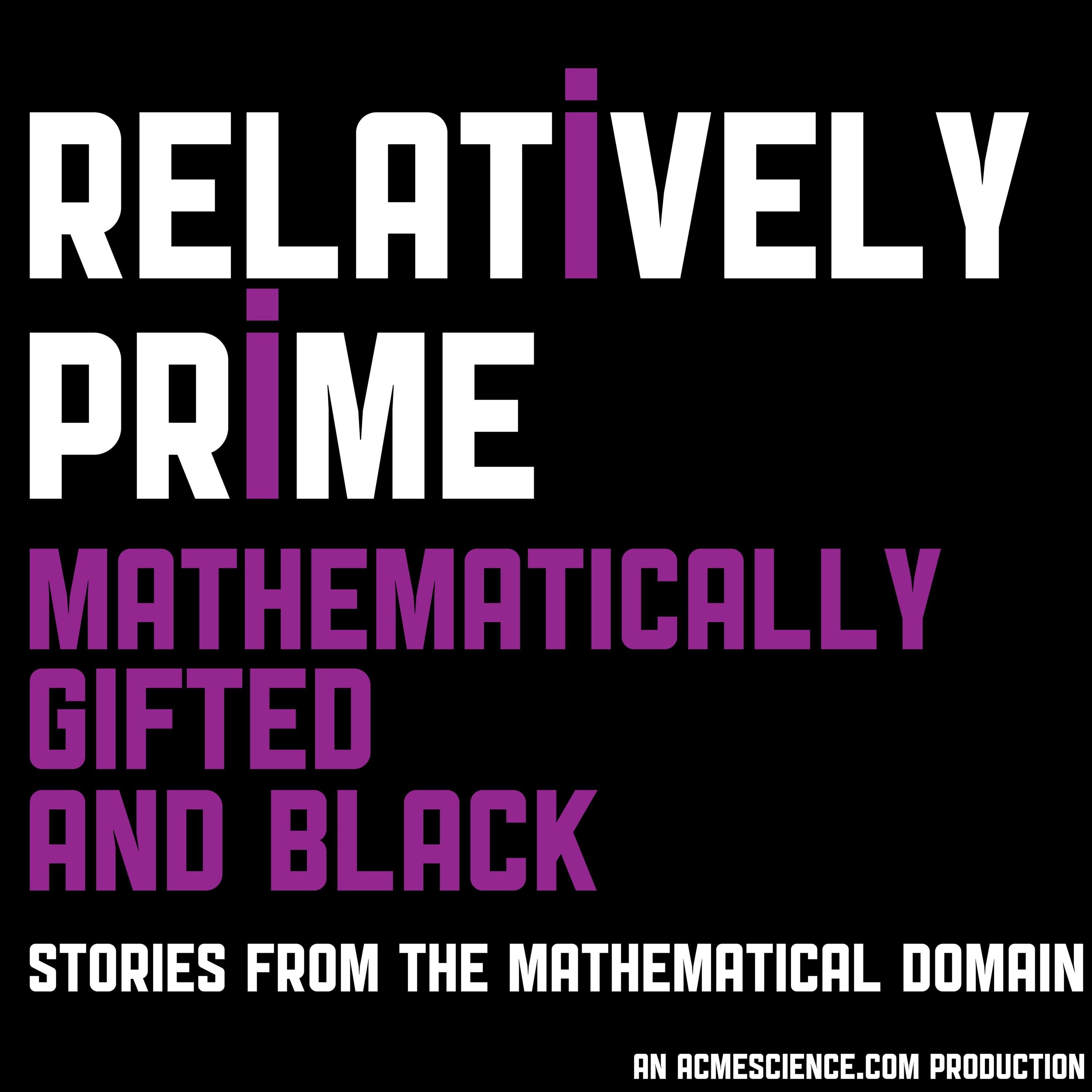
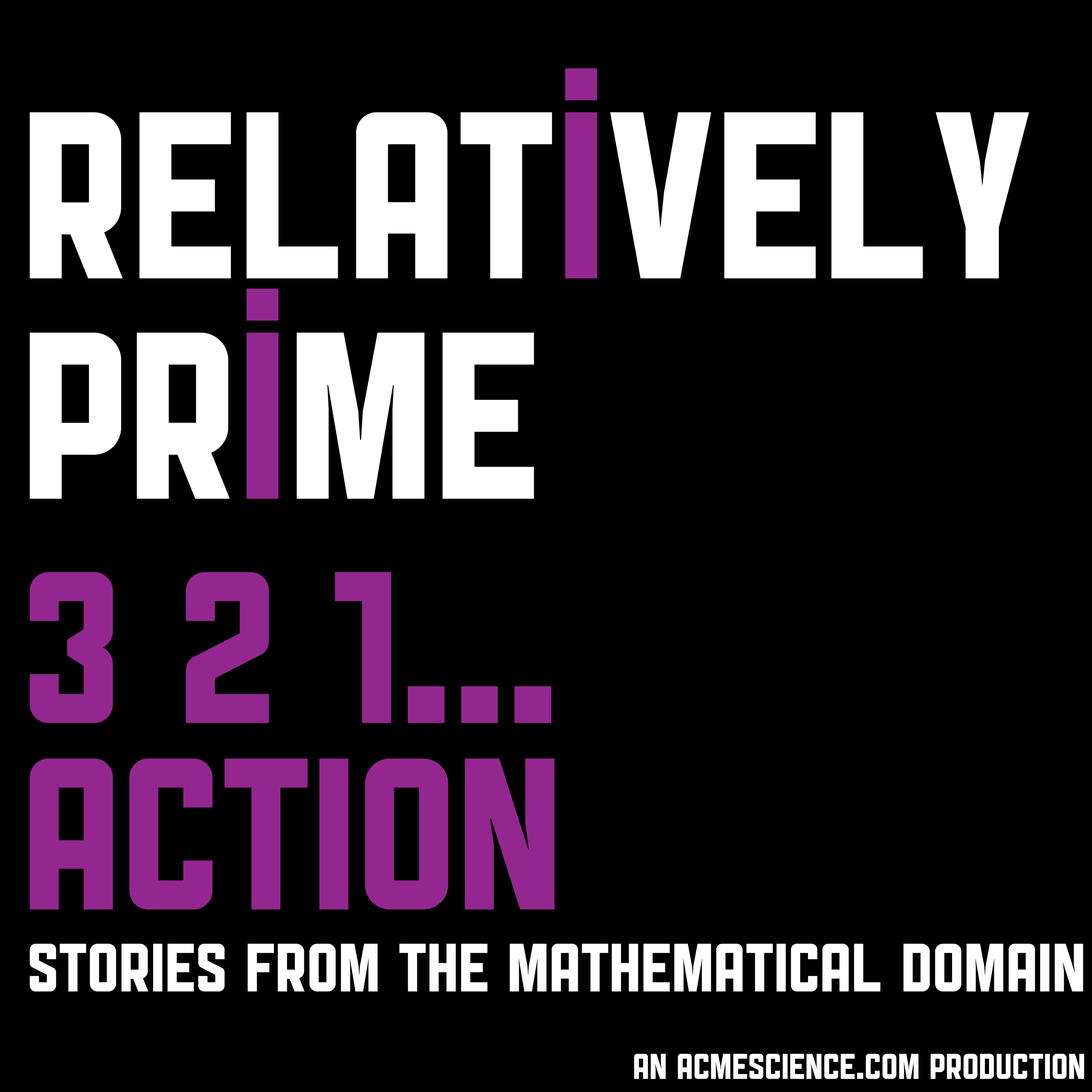



I just recently discovered your podcast and have started listening to the very first couple of episodes. So far, I habe found them to be a fairly enjoyable way to keep my mind active during my daily 3hr commute. In terms of this particular episode, one of the mathematicians you interviewed (the one with lots of n-dimensional models strewn about his office), provided what he described as an "intellectual land-grab" definition of Mathematics. If my memory serves me correctly, I believed his definition was something to the effect of, 'mathematics is largely the sole construction of human intellect and that the edifice of maths does not require any reference to, or reliance upon, the real world'. I would tend to agree that pure mathematics is a truly abstracted - yet highly ordered and self-consistent conceptual framework - and I believe that no matter how hard one peers into the depths of mother nature, they will be remiss to find such a thing as a 'perfect circle'. The 'perfect circle'
Just a note that equal temperament is not the same as Pythagorean and thus modern instruments are not tuned using the Pythagorean tuning system. The reason why early polyphonic music focused more on intervals limited to fourths, fifths, and octaves are because of the inherent "dissonance" of basing temperament systems on harmonics (as was the Pythagorean system). While well-temperament took hold for some time (where the tuning system was closer to equal temperament but not quite), today we mainly use equal temperament. This is mainly due to convenience and to conserve intervals over entire registers.